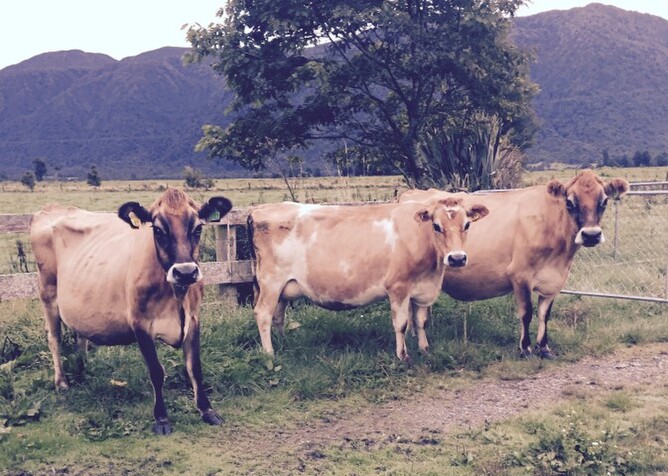Breeding programme gives birth to horn-less dairy cows
CRV Ambreed's latest breeding programme will offer dairy farmers a wider selection of high genetic merit, horn-less cows.
The herd improvement company has been developing its polled product line for over a decade, which has been driven by farmers concerned about animal welfare, human safety and the cost of de-horning animals.
The programme has gained momentum over the past three years and polled genetics will be available to market as soon as next year.
CRV Ambreed research and development manager, Phil Beatson, says the beauty about polled genetics is that it's controlled by a single gene. An animal only needs one copy of that gene – they are heterozygous for the polled gene - to be polled.
"In breeding we have to breed bulls that have two copies of the gene, i.e. they are homozygous, for polled. When we breed heterozygous bulls with heterozygous cows there's a one in four chance of getting a homozygous polled, two in four of heterozygous and one in four of a homozygous horned animal from those matings," he explains.
"Then when the homozygous bull is bred to horned cows all of the progeny will be polled."
The aim is to make sure the polled progeny are also high indexing; CRV Ambreed is aiming at 220+ BW. Beatson says five heterozygous cows and five bulls have been identified with that criterion.
"We've been undertaking embryo transfer programmes and we're confident those programmes will result in some homozygous polled progeny. The law of averages says two or three," he says.
CRV Ambreed already has access to a number of overseas homozygous polled bulls through its global network, but many farmers still want high-indexing New Zealand genetics that have been proven in a range of New Zealand farming systems and environments.
"In Europe they are increasingly asking 'should we be dehorning animals?' and they're using genetics so safely manage this. There's some talk that by 2025 it may be illegal to dehorn animals in Europe. If that happens, New Zealand could follow suit and we need to be prepared," he says.
CRV Ambreed's polled bulls will be released to the market once they produce semen in 2017.
They will be guaranteed for having two copies of the gene so that 100% of their progeny will have one copy and will be polled.
The current cost of dehorning cows is significant. A farm with 200 replacements at $6-7 per animal equates to about $1,200 to $1,400 for dehorning.
The herd improvement company has been developing its polled product line for over a decade, which has been driven by farmers concerned about animal welfare, human safety and the cost of de-horning animals.
The programme has gained momentum over the past three years and polled genetics will be available to market as soon as next year.
CRV Ambreed research and development manager, Phil Beatson, says the beauty about polled genetics is that it's controlled by a single gene. An animal only needs one copy of that gene – they are heterozygous for the polled gene - to be polled.
"In breeding we have to breed bulls that have two copies of the gene, i.e. they are homozygous, for polled. When we breed heterozygous bulls with heterozygous cows there's a one in four chance of getting a homozygous polled, two in four of heterozygous and one in four of a homozygous horned animal from those matings," he explains.
"Then when the homozygous bull is bred to horned cows all of the progeny will be polled."
The aim is to make sure the polled progeny are also high indexing; CRV Ambreed is aiming at 220+ BW. Beatson says five heterozygous cows and five bulls have been identified with that criterion.
"We've been undertaking embryo transfer programmes and we're confident those programmes will result in some homozygous polled progeny. The law of averages says two or three," he says.
CRV Ambreed already has access to a number of overseas homozygous polled bulls through its global network, but many farmers still want high-indexing New Zealand genetics that have been proven in a range of New Zealand farming systems and environments.
"In Europe they are increasingly asking 'should we be dehorning animals?' and they're using genetics so safely manage this. There's some talk that by 2025 it may be illegal to dehorn animals in Europe. If that happens, New Zealand could follow suit and we need to be prepared," he says.
CRV Ambreed's polled bulls will be released to the market once they produce semen in 2017.
They will be guaranteed for having two copies of the gene so that 100% of their progeny will have one copy and will be polled.
The current cost of dehorning cows is significant. A farm with 200 replacements at $6-7 per animal equates to about $1,200 to $1,400 for dehorning.
